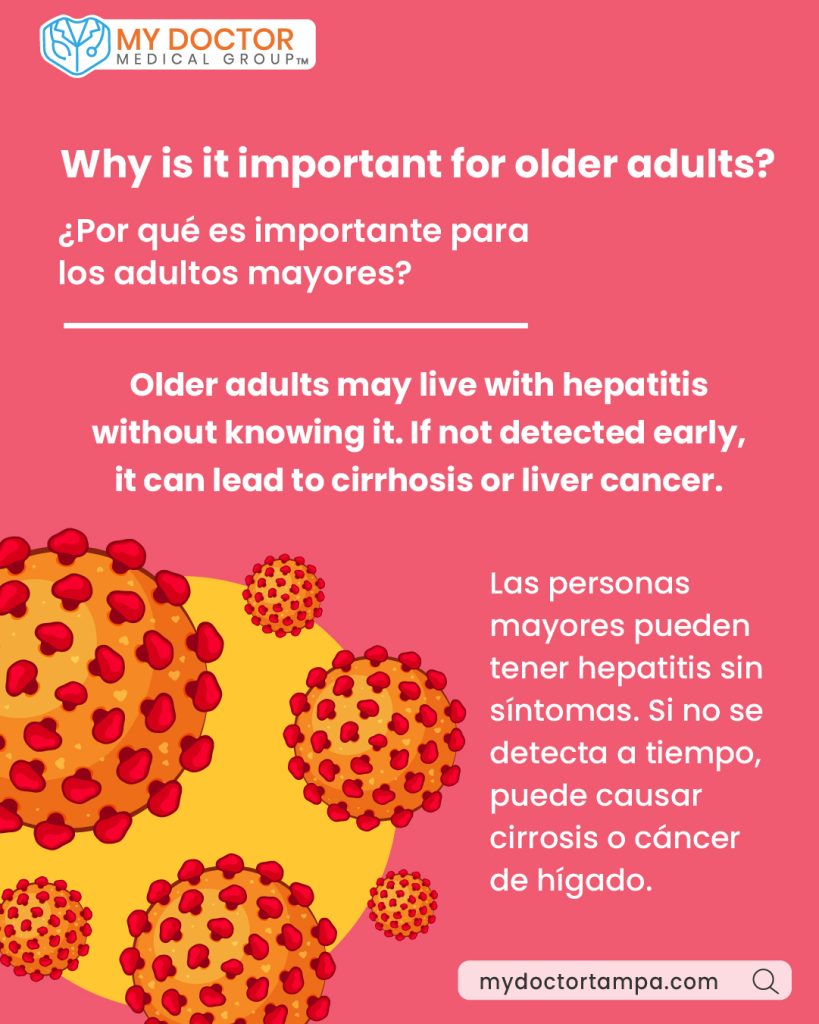Each year on July 28, the world unites to shed light on hepatitis—a silent threat causing millions of deaths. In 2025, the message is clear: “Let’s Break It Down.” Discover key facts, helpful recommendations, and ways to protect your liver health—because knowledge can truly save lives.
What is World Hepatitis Day and why it matters
🧠“Hepatitis: Let’s Break It Down”
- Calls for breaking social, financial, and systemic barriers, including stigma, to improve vaccination, testing, treatment, and care.
- Over 300 million people live with chronic hepatitis B or C, and many remain undiagnosed.
- Untreated infections cause over 1.3 million deaths yearly.
- Global goal: eliminate hepatitis as a public health threat by 2030.
Education and awareness: Understanding the types of hepatitis
| Type | Transmission | Acute or Chronic | Educational Insights |
|---|---|---|---|
| Hepatitis A | Ingesting contaminated food or water, poor hygiene | Acute | Usually mild, does not lead to chronic disease. Can be prevented with vaccination and proper sanitation. |
| Hepatitis B | Contact with infected blood, sexual contact, perinatal (mother to child at birth) | Acute & Chronic | Chronic infection can lead to liver failure, cirrhosis, or cancer. Preventable with a highly effective vaccine. |
| Hepatitis C | Exposure to infected blood, primarily through unsafe injection practices | Acute & Chronic | Often silent at first, but can cause serious long-term liver damage. Curable in most cases with modern antiviral treatments. No vaccine available. |
Practical tips to prevent hepatitis
- Get vaccinated: Vaccines for hepatitis A and B are safe and effective.
- Use safe medical practices: Never reuse needles or share personal items.
- Practice safer sex: Use condoms and get tested if you have multiple partners.
- Travel smart: Avoid untreated water and raw food in areas with poor sanitation.
- Know your status: A simple blood test can detect infection.
- Take care of your liver: Limit alcohol, maintain a healthy weight, and avoid unnecessary medications.
Why it’s vital after age 45
Many adults (especially those born before 1992) may have been exposed through transfusions or past healthcare. Age increases the risk of long-term liver damage. Early detection makes a big difference.
Book an appointment today to talk with our specialists about testing, vaccination, or liver health guidance. Your liver deserves care—get informed, get checked, and protect your future.

Sources
World Health Organization
Hepatitis B & general hepatitis
Hep Foundation & Australian sources: treatment & health habits
